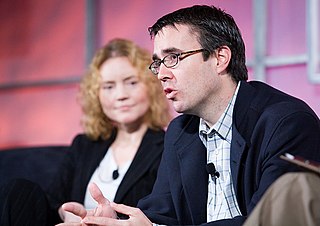A Quote by James Dyson
Far too few designers put any thought into usability, ending up with a great product that's completely inaccessible.
Related Quotes
It's always easiest for me as a writer if I know I have a great ending. It can make everything else work. If you don't have a good ending, it's the hardest things in the world to come up with one. I always loved the ending of 'The Kite Runner,' and the scenes that are most faithful to the book are the last few scenes.
I feel that there is an alternate ending that leaps off too far into fantasy and there is an alternate ending that leaps off too far into pessimism, but that, in fact, the novel as it has developed should, if it's functioning correctly, have equipped you as the reader to make your own decision about where you want to go with that, about where you're going to fall on that continuum. So, the novel is taking you directly up to the point that you have to choose, and it's letting you do that.
While the creative works from the 16th century can still be accessed and used by others, the data in some software programs from the 1990s is already inaccessible. Once a company that produces a certain product goes out of business, it has no simple way to uncover how its product encoded data. The code is thus lost, and the software is inaccessible. Knowledge has been destroyed.
I have my own theory about why decline happens at companies like IBM or Microsoft. The company does a great job, innovates and becomes a monopoly or close to it in some field, and then the quality of the product becomes less important. The company starts valuing the great salesmen, because they’re the ones who can move the needle on revenues, not the product engineers and designers. So the salespeople end up running the company.
If you think of the product as a service, then the separate parts make no sense - the point of a product is to offer great experiences to its owner, which means that it offers a service. And that experience, that service, comprises the totality of its parts: The whole is indeed made up of all of the parts. The real value of a product consists of far more than the product's components.
If there is a well thought-out design standard, it should be followed. In practice, great design comes from great designers. That is empirically the case. If a great designer did a first-rate standard, that model should be followed. Great design is not democratic; it comes from great designers. If the standard is lousy, then develop another standard.
The power to determine the quantity of money... is too important, too pervasive, to be exercised by a few people, however public-spirited, if there is any feasible alternative. There is no need for such arbitrary power... Any system which gives so much power and so much discretion to a few men, [so] that mistakes - excusable or not - can have such far reaching effects, is a bad system. It is a bad system to believers in freedom just because it gives a few men such power without any effective check by the body politic - this is the key political argument against an independent central bank.
Alas! we know that ideals can never be completely embodied in practice. Ideals must ever lie a great way off--and we will thankfully content ourselves with any not intolerable approximation thereto! Let no man, as Schiller says, too querulously "measure by a scale of perfection the meager product of reality" in this poor world of ours.








































